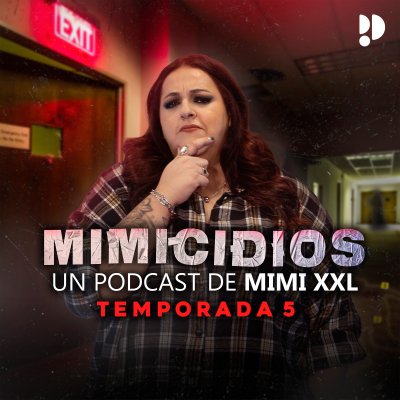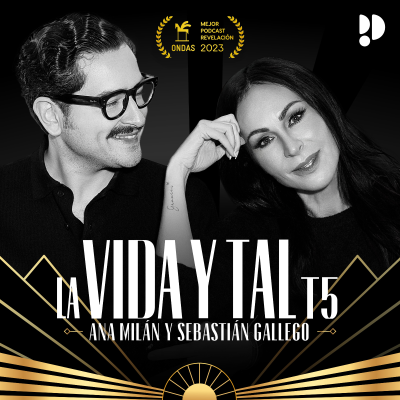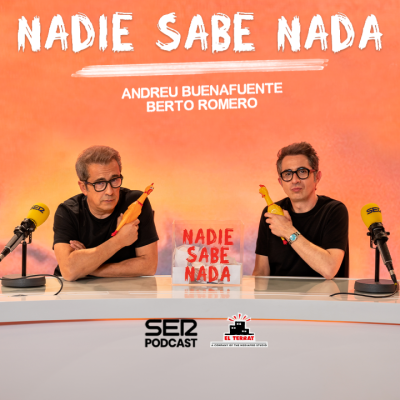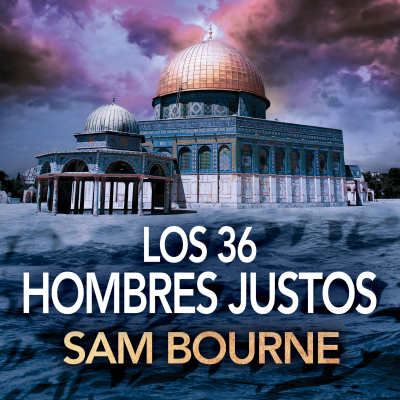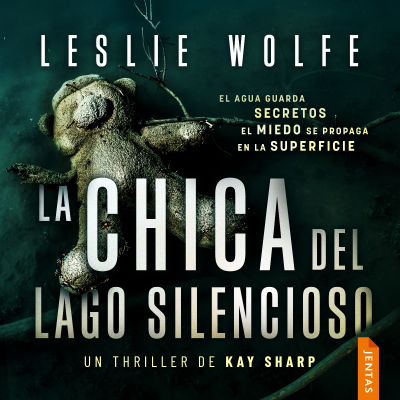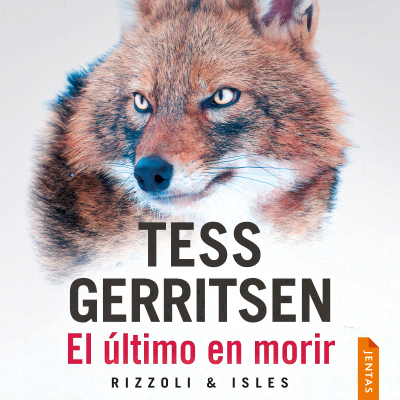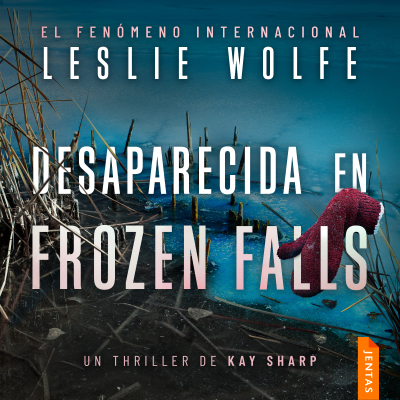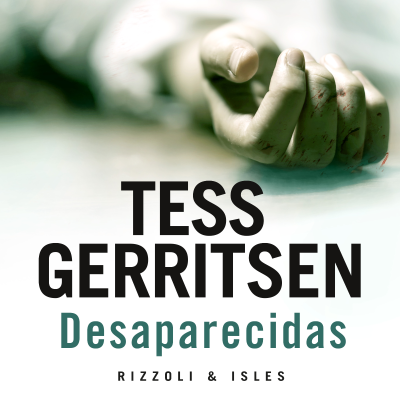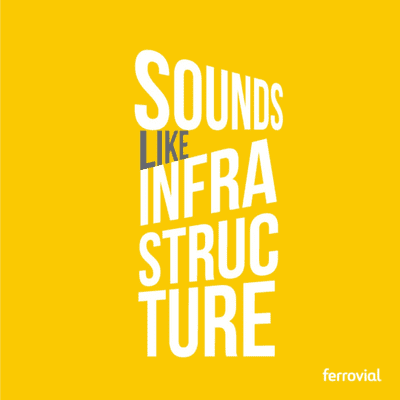
Sounds Like Infrastructure by Ferrovial
Podcast de Ferrovial
Disfruta 90 días gratis
9,99 € / mes después de la prueba.Cancela cuando quieras.
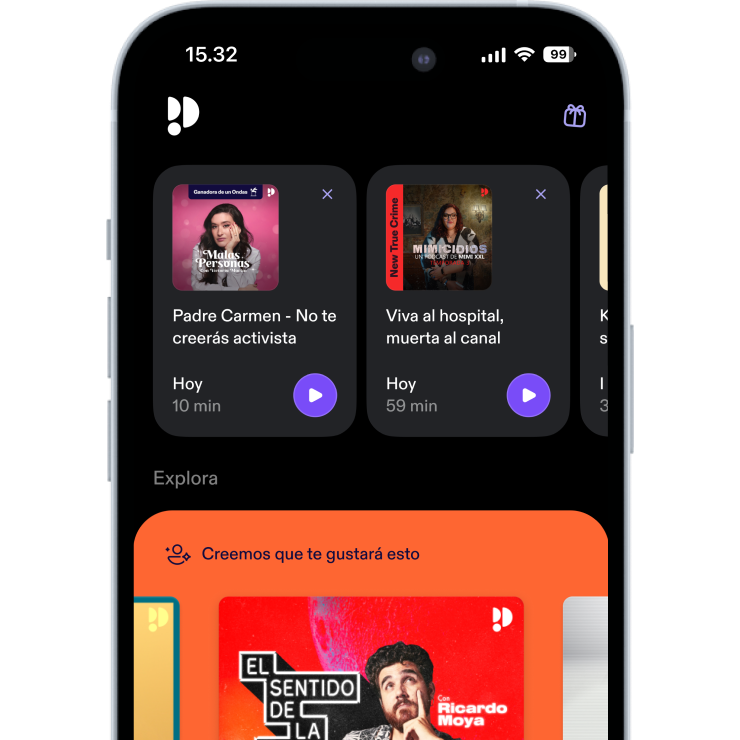
Más de 1 millón de oyentes
Podimo te va a encantar, y no sólo a ti
Valorado con 4,7 en la App Store
Acerca de Sounds Like Infrastructure by Ferrovial
When working well, the infrastructure we use is all but invisible. Its seamless integration into our daily lives means we rarely stop to think "How did this get here?" Sounds Like Infrastructure reveals the secrets and stories behind some of the world’s biggest infrastructure projects. Learn more at Ferrovial.com Hosted on Acast. See acast.com/privacy for more information.
Todos los episodios
27 episodiosHave you ever wondered what life would be like without electricity? Most of us don’t give it much thought—until the lights go out. In February 2021, Winter Storm Uri swept across Texas, plunging millions into darkness. Roads froze, power lines snapped, and hospitals were overwhelmed. Texans faced days of uncertainty in freezing temperatures, underscoring the fragility of our energy systems. This event highlighted the need for a more resilient energy future. The U.S. has relied heavily on fossil fuels like coal, oil, and gas for energy. However, over the past decades, the energy landscape has shifted toward renewable sources such as wind and solar power. Despite this effort, renewables come with challenges, such as intermittency, which is why backup systems like natural gas remain crucial. Innovating in an urban setting is becoming more and more critical. An example is the case of JFK Airport’s New Terminal One in New York, where an advanced microgrid that combines solar, battery, and hydrogen technologies is being implemented. This system can operate independently of the grid during outages, offering resilience in a high-risk coastal area. Ferrovial’s commitment to innovation and sustainability reflects its vision to create a better world. By modernizing infrastructure and investing in clean energy, the company is helping communities adapt to the challenges of climate change while ensuring a stable power supply for generations to come. Sounds Like Infrastructure is a collaboration between Ferrovial and Yes We Cast. Our team includes Francisco Izuzquiza, Alberto Espinosa, Ignacio Fernández Vázquez, Luciano Branca, Gabriel Ureta, José García Guaita, Arantxa Gulias, Marina Pastor, Bethany Ashcroft and Fatima Gracia De Vargas. In addition to the podcast, we have a great blog with so many more stories about infrastructure projects. https://blog.ferrovial.com/en/. If you enjoyed this episode, check out the other episodes on the official Ferrovial Podcast page. We also have a Spanish Podcast channel. ---------------------------------------- Hosted on Acast. See acast.com/privacy [https://acast.com/privacy] for more information.
Let's travel back in time, about 100 years, to the state of Texas. Today, five of the most populated cities in the United States are here, but in the early 20th century, it was a small rural community connected by dirt paths. The arrival of industrialization completely transformed the area, especially two communities, the Dallas–Fort Worth metroplex. Transportation advancements contributed to its rapid expansion, with one critical network: highways. However, there came a point when the development of the road network and population growth became uncoordinated. This presented a challenge: How can we create a future transportation network that supports sustainable population and economic growth? The mission was clear: designing a project to enhance urban mobility while tackling congestion and traffic jams. But the challenge was anything but simple, as we had to accommodate over 13 million vehicles on the roads. Our team started looking for a real-time solution that wouldn't take years to implement, and that's when the concept of Managed Lanes was born. This groundbreaking system introduces additional lanes with advanced technology that analyzes traffic patterns and creates a pricing strategy tailored to demand. By offering drivers the choice to use these lanes, we reduce traffic and revolutionize how people move around. In this episode, join Jose Espinosa, CEO of Texpress Lanes, and María Chávez, sustainability manager at Cintra, the highways subsidiary of Ferrovial, as they dive deep into the workings of this innovative system. Discover how the LBJ Express, NTE, and NTE 35W set the standard for sustainable mobility in Texas. Sounds of Infrastructure is a collaboration between Ferrovial and Yes We Cast. Our team includes Francisco Izuzquiza, Alberto Espinosa, Ignacio Fernández Vázquez, Luciano Branca, Gabriel Ureta, José García Guaita, Arantxa Gulias, Marina Pastor, Bethany Ashcroft and Fatima Gracia De Vargas. In addition to the podcast, we have a great blog with so many more stories about infrastructure projects. https://blog.ferrovial.com/en/. If you enjoyed this episode, check out the other episodes on the official Ferrovial Podcast page. We also have a Spanish Podcast channel. ---------------------------------------- Hosted on Acast. See acast.com/privacy [https://acast.com/privacy] for more information.
Have you ever dreamt of flying? This dream is quite common. Humans have always been fascinated by the skies, and our quest to conquer them dates back to the Spain of Al-Ándalus. Amazing, isn’t it? In the 9th century, the Andalusian scientist Abbás Ibn Firnás decided he wanted to fly. After a few crashes, he created a prototype that was able to glide for a few seconds. Interestingly, this device also became the world's first parachute when he attempted to land. Fast forward to the past century, the Wright Brothers made history by creating the first airplane. With this achievement, the aviation industry took off, leading to the creation of the first airports. Today, airports have become global hubs, connecting the world through the skies. This transformation has been driven by continuous innovation and adaptation to meet new user needs and security requirements. Our colleagues from Ferrovial's Airports subsidiary, Víctor Vicente, Asset Manager; Laura López Sotomayor, Financial Director; and Ismael Ordoñez, Head of Asset Management, share insights on how airports have evolved into the infrastructures we know today. Furthermore, what can we expect from the future of aviation? Tune in to this episode and join us in a guessing game about how the horizon might look the next time we take a plane. Sounds Like Infrastructure is a collaboration between Ferrovial and Yes We Cast. Our team includes Francisco Izuzquiza, Alberto Espinosa, Ignacio Fernández Vázquez, Luciano Branca, Gabriel Ureta, José García Guaita, Arantxa Gulias, Marina Pastor, Bethany Ashcroft and Fatima Gracia De Vargas. In addition to the podcast, we have a great blog with so many more stories about infrastructure projects. https://blog.ferrovial.com/en/. If you enjoyed this episode, check out the other episodes on the official Ferrovial Podcast page. We also have a Spanish Podcast channel. ---------------------------------------- Hosted on Acast. See acast.com/privacy [https://acast.com/privacy] for more information.
London is one of the main metropolitan areas of the world. If you think about the English capital, you can probably name ten iconic things off the top of your head. Shakespeare, Abbey Road, Buckingham Palace, Sherlock Holmes. A city that's buzzing with music and theater, in constant movement. The London metro system, or the "tube" as Londoners call it, is a symbol of the city's vitality. It's not just a network of tunnels and trains but a testament to the city's evolution. From its small beginning to the complex system, it is today, a lot of history and effort has gone into making it what it is. The Tube, the world's first underground railway, has a rich history that dates back to the construction of the Metropolitan Railway, the first metro line, inaugurated on January 10th, 1863. Today, the system boasts 275 stations organized on 11 lines, a far cry from its humble beginnings. Today, the London underground has grown and evolved alongside the city. In this episode, we delve into London's history and the Tube's evolution, culminating in the Northern Line Extension. Carlota Guiu Morros and David Drake Sloan, who spearheaded this project, share the challenges and necessities of constructing one of London's largest redevelopments in 300 years. Sounds Like Infrastructure is a collaboration between Ferrovial and Yes We Cast. Our team includes Francisco Izuzquiza, Alberto Espinosa, Ignacio Fernández Vázquez, Luciano Branca, Gabriel Ureta, José García Guaita, Arantxa Gulias, Marina Pastor, Bethany Ashcroft and Fatima Gracia De Vargas. In addition to the podcast, we have a great blog with so many more stories about infrastructure projects. https://blog.ferrovial.com/en/. If you enjoyed this episode, check out the other episodes on the official Ferrovial Podcast page. We also have a Spanish Podcast channel. ---------------------------------------- Hosted on Acast. See acast.com/privacy [https://acast.com/privacy] for more information.
How can we evolve as a society without sidelining the environment? The past few decades have brought about new needs in a rapidly evolving landscape, bringing up new questions. The challenge is to find ways to adapt to the local habitats we’re building in, from the tallest trees to the smallest animals. But, how can we protect some of the most fragile species in our projects? This dilemma is precisely what our team faced. The 407 ETR highway in Ontario, Canada, is a key infrastructure for transportation in the area. It’s, in fact, one of the busiest roads in North America. It is also surrounded by vast wildlife where a critical species lives, the monarch butterfly, an endangered species necessary to keep life going due to their main role as pollinators. So, when we started to build this highway, it became imperative to do so in such a way that the ecosystem became the main infrastructure. The project was designed to promote local biodiversity and support the monarch butterfly, creating a corridor for nature preservation. Working hand in hand with the Canadian Wildlife Federation we established a native flower garden where the monarch butterfly can thrive. Together, we are pioneering a new approach to construction, where humanity and nature coexist harmoniously on our path to a sustainable future. We talk about this in this podcast episode. We hope you like it! Sounds of Infrastructure is a collaboration between Ferrovial and Yes We Cast. Our team includes Francisco Izuzquiza, Alberto Espinosa, Ignacio Fernández Vázquez, Luciano Branca, Gabriel Ureta, José García Guaita, Arantxa Gulias, Marina Pastor, Bethany Ashcroft and Fatima Gracia De Vargas. In addition to the podcast, we have a great blog with so many more stories about infrastructure projects. https://blog.ferrovial.com/en/. If you enjoyed this episode, check out the other episodes on the official Ferrovial Podcast page. We also have a Spanish Podcast channel. ---------------------------------------- Hosted on Acast. See acast.com/privacy [https://acast.com/privacy] for more information.

Valorado con 4,7 en la App Store
Disfruta 90 días gratis
9,99 € / mes después de la prueba.Cancela cuando quieras.
Podcasts exclusivos
Sin anuncios
Podcast gratuitos
Audiolibros
100 horas / mes



